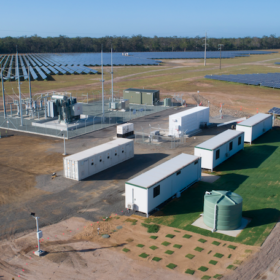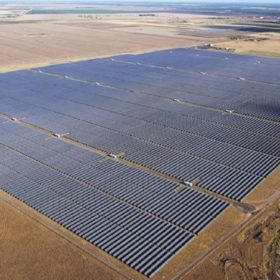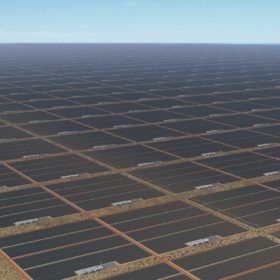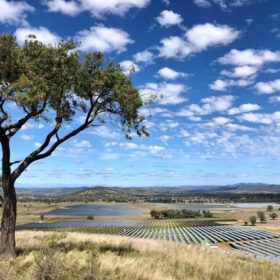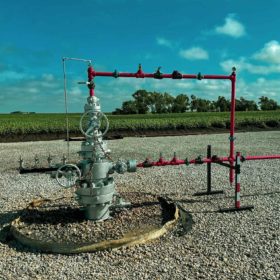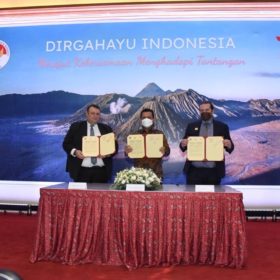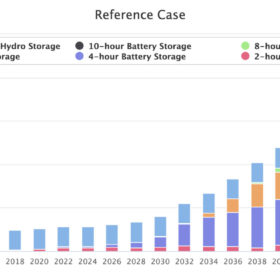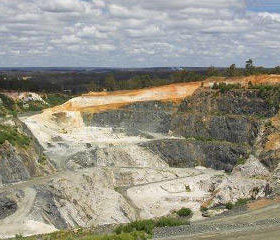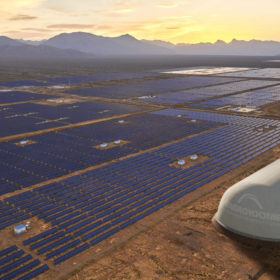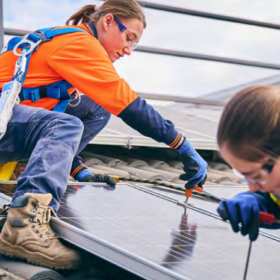Megafund acquires three east coast solar farms in takeover of Elliot Green Power
Global investment manager Igneo Infrastructure Partners will acquire Elliot Green Power, along with its solar and storage portfolio, via its Australian business, Atmos Renewables.
180 MW solar farm and possible battery unveiled for Queensland’s Western Downs
Developer Renewable Energy Partners has announced plans for a 180 MW solar PV project, possibly with a battery storage system, in the Western Downs region of Queensland.
Full extent of Sun Cable megaproject revealed
Singapore-based Sun Cable has submitted its Environmental Impact Statement to the Northern Territory Environment Protection Authority. The document reveals the full extent of the project’s enormity, specifically a 17-20 GW solar farm tied to 36-42 GWh of battery energy storage, which is set to be transmitted by subsea cables to Singapore.
Indonesia’s Riau Islands set for more big solar and storage
Developers are moving fast to meet Singapore’s clean energy needs by establishing overseas solar-plus-storage plants, with a strong focus on facilities in neighbouring Indonesia.
Lightsource bp proposes 400 MW solar farm south of Goulburn
Lightsource bp’s ambitious solar capacity target of 25 GW by 2025 is driving significant expansion of its Australian portfolio, including its most recent proposal of the 400 MW Gundary Solar Farm south of Goulburn, NSW.
Natural hydrogen: how the potential wellspring works and why companies are pouncing
With its promise of cheap, easy ‘god molecules’ flowing inexhaustibly from the ground, it’s no wonder natural hydrogen is piquing interest. Sometimes referred to as ‘gold’ or ‘white’ hydrogen, Avon McIntyre, executive director of HyTerra, an Australian company in the space, told pv magazine Australia natural hydrogen projects should have smaller carbon footprints than sprawling green hydrogen plays and, moreover, would be ready quicker. Enticing as it sounds, unknowns remain.
3.5 GW Indonesian solar plus storage facility proposes export to Singapore
A partnership between Quantum Power Asia and Berlin-based ib vogt is proposing a 3.5 GW solar and storage facility in Riau, Indonesia, an archipelago of islands south of Singapore. The AUD$6.7 billion potential project aims to export the generated solar to the Singaporean city-state by 2032, meeting 8% of its electricity needs.
Storage projections for 2050
The US National Renewable Energy Laboratory’s (NREL) final report on the future of storage presents “key learnings” from a series of six in-depth studies.
Australia’s critical minerals inventory boosted significantly in 2020, vanadium up 24%
Australia’s inventories of critical materials for batteries have seen major increases recently, with vanadium up 23%, lithium up 8%, rare earths up 4% and platinum group elements up 185% in the year to December 2020.
CO2 battery long-duration energy storage technology wins BNEF Pioneers 2022 competition
Energy Dome’s emission-free energy storage method uses carbon dioxide in a closed loop charge/discharge cycle that can store and dispatch renewable energy onto the grid over periods from four to 24 hours.
